Your photography has such power, color and humanity. What are the things you look for in composing your work?
My process begins with getting at the soul and guts of a story and the people who are directly impacted. Wherever I am, no matter the day, I see the incredible beauty of light and how it shapes everything. However, at this moment in our world I’m not comfortable with simply making pretty photos. Living in such a visually based society, photography and photojournalism have such a well of potential to impact people’s perceptions as well as public policy. Beauty ultimately becomes a tool to engage the viewer, often on subject matter resulting from the ugliest parts of our humanity.
How did you come to making photography your creative voice?
First let me clear, I never expected to become a professional photographer. Though I’m trained extensively in fine arts and design, I am a self-taught photographer. I believe it’s important to be transparent about this because the arts need to be accessible to everyone, not isolated in some ivory tower. The arts and creativity have nothing to do with elitism or wallet size. The arts are about making space for each person’s voice and creative spirit. The arts teach us all about our history, our world and ourselves. They must be accessible, the arts save so many lives… mine included.
There are 3 primary contributing factors to photography becoming my work and creative voice, but it certainly wasn’t a direct route for me. The influence of my grandfather has been a huge factor in my life. Second, my gnawing need to use what I can do to contribute. Finally, receiving the diagnosis when I was 20 of Ehlers-Danlos Syndrome (E.D.S.), a rare, degenerative, genetic disorder without a cure, it prodded me in this direction while also taking some other options off the table.
Thanks to my grandfather, I knew I had the photography bug when I was about 7, starting with that delicious sound of the closing shutter which actually made my hair stand on end (yeah, I know, I’m weird but I’m okay with that now). When I turned 16 my mom gave me my first 35mm, a little Olympus that I still love to shoot with. For years all I wanted was a35mm. Despite a lot of struggles, the one thing my mom has continually encouraged in my life are the arts, being an artist and designer herself.
My grandfather served in the Royal Canadian Signals as part of the Number 1 Special Wireless Group during World War 2 (from 1939-1946). He was a code breaker. He also took photos for the military, several of which I have and am trying to learn more about. After the war he built a darkroom out of found objects from the dumpsters, including his homemade enlarger. I’ll never forget the first time I watched him place a negative into the enlarger, focus, and suddenly this tiny, inverted image came to life! It blew my young mind!
Growing up in a traditionally Jewish home, in addition to my grandfather being a WW2 veteran and his father having escaped the Russian KGB (a result of his labor organizing work), there were three pieces of knowledge my grandpa embedded into very my DNA. Despite his death when I was 12 I’m so grateful he shaped my core values, what I do now and most certainly how I see. This is what he taught me which drives my work:
One of the greatest weapons of suppression is the erasure of another person or group’s story.
Remember the victors always write the history books.
Question everything, always. The more you are told not to question something, the more it needs to be examined inside out.
 Students organized action and vigil responding to Tyler Clementi’s suicide. Washington Square Park, New York City. 10.03.2010 Photo by Syd London ©2010, all rights reserved.
Students organized action and vigil responding to Tyler Clementi’s suicide. Washington Square Park, New York City. 10.03.2010 Photo by Syd London ©2010, all rights reserved.
How have people responded to your work?
It’s important to remember how much has happened in the last 10 years. The LGBTQITSGNC and POC communities were dramatically less visible in mainstream media; issues such as transgender rights were certainly not getting any meaningful coverage. As a result there was a strong response to finally seeing our lives being reflected in a more truthful, real and broader ranging way. Honestly, the response to my work really surprised me. I don’t believe any part of this journey would have evolved without the queer community making space for my work. It’s something I’m profoundly thankful for. Community gave me the first opportunities and encouraged me through my photographic growing pains. Community gave me the chance to build my portfolio and the confidence to do that really scary and vulnerable thing – put my work and voice out there.
Shortly after my work began getting published I started receiving some powerful emails and messages through social media. I’ve never talked about it before. Prior to the reversal of “Don’t Ask, Don’t Tell”, deployed military members would send me secret messages, along with people out in middle of America and even remote places in Europe. They all wrote about how it felt to see these published photos of people they could relate to. They told me they felt less alone or didn’t know they weren’t alone until they saw my photos of our community. It was really deep. I saved each message for my tough days, to ground me in why I do what I do.
 As a young artist, do you feel like people expect different things from you creatively? If so, what types of things and how do you respond?
As a young artist, do you feel like people expect different things from you creatively? If so, what types of things and how do you respond?
Thank you dearly for calling me young, I’m turning 39 in a few months, though no one seems to believe it. My guess is that it’s a result of my being so excited to be alive, free and doing what I’m doing.
Honestly, I’ve been more aware of expectations because of being female and a totally “out” queer than I have been about age… actually I find that people seem surprised that one of the projects I’m working on is “Aging While Queer”.
While I may only be in my 30’s, I see many parallels between the disability rights movement, elder rights and how so many social justice movements overlap in the struggle. If anything, folks are caught off guard that I’m so passionate about what is happening to our generations of elders out there. While we must deal with and make space for our homeless queer youth, we can’t ignore how often our elders are fighting to stay off the streets or end up in the shelter system. Too many of our LGBTQITSGNC elders are unable to get proper health care and are living in isolation.
 Behind the scenes on the first shoot for “Aging While Queer” with Miss Major and Jay Toole. Oakland, CA. Photo by Wendi Kali ©2013, all rights reserved.
Behind the scenes on the first shoot for “Aging While Queer” with Miss Major and Jay Toole. Oakland, CA. Photo by Wendi Kali ©2013, all rights reserved.
My generation and younger often say, “we stand on the shoulders of our elders, they paved the way” yet our elders are facing terrible issues of ageism, even within the queer social justice work place. At the same time many of our elders are watching their own histories / herstories being white-washed before their very eyes. That’s why I started working on the multi media (video, audio and photo) project “Aging While Queer” and am currently pursuing funding to continue.
When people walk away from viewing your artwork, what do you want them to carry with them?
Photography is so subjective there’s a lot of room and potential. The potential takeaway is likely to be different depending on who you are. For some, I hope they learn a little something that perhaps builds a new kind of compassion. For others, I sure hope they feel less isolated and walk away feeling empowered. Education, empowerment and compassion are all powerful tools to move forth with.
Young women and men are often challenged by hostility from their peers as they are growing up. Have you ever experienced or witnessed bullying, harassment or humiliation? If so, could you share about those experiences?
Yes, I’ve experienced a great deal of bullying and fear but I believe it’s also important to note my partner, who’s in her late 60’s, is still afraid to use a bathroom in New York City today. Yes, we are an intergenerational couple. Sadly, I’ve found that bullying, fear and suppression are not limited to a specific age group.
My partner, Jay Toole, is very butch; she’s often mistaken for a man. In our community her butchness is celebrated, her nickname is even “Super Butch”. However, when she steps out into the rest of the world it’s entirely different, she can’t even go to the bathroom safely. Something seems terribly wrong in this society when someone who witnessed the Stonewall rebellion almost 50 years ago, as a homeless youth, still can’t go to the bathroom without worrying about arrest today.
Despite all the precautions she takes, including using a female buddy system, the NYPD are often called on her if she dares use the woman’s bathroom. People rarely ask or communicate before calling the police. Way too many in our community are living with the fear of simply needing to pee. Jay is in a particularly precarious position thanks to the sumptuary laws that were enforced into the 1980’s in NYC. The sumptuary laws were yet another way to institutionalize gender policing, requiring a person to wear 3 articles of clothing associated with the gender they were assigned at birth. Like so many queer youth, Jay ended up on the streets because she was thrown out. She was beaten and arrested by the NYPD countless times while homeless. Now Jay lives with traumatic brain injury among other injuries because of these beatings, along with a lengthy arrest record. She knows her body can’t handle being rough handled or beaten again. Based on her experiences, Jay is really concerned she’ll be rough handled if the NYPD get to her, because of having a record.
The bathroom issues that we are finally talking about in the media are far from new. Our gender non-conforming and transgender community has been impacted by gender policing for countless generations. People should not be afraid of arrest or worse because they need to use the bathroom. This is bathroom bullying!
Can you explain why the issue of bullying is important to you?
It’s hard for me not to associate bullying with suicide and suicidal ideations. School could have been my refuge; I’ve always loved learning. Instead school felt like one more battlefield. Mostly it was verbal but the bullying was relentless. The bullying came from both teachers and students at a time when I struggled to believe I had any right to exist. My mom began threatening to kill herself, then disappearing into the night when I was nine. I knew her mom had killed herself so it just me seemed like the one door out, if I couldn’t hack it anymore during my childhood. When I was 5 years old my father stuck his handgun in my mouth and told me if I ever told what was happening he would kill my mom and me. As a result of my dad’s violence and my mom’s mental health instability I thought it was my job to protect my mom. I understand the price of silence really well.
By the time I was in middle school my mom left our faith, becoming a born again Evangelical Christian. When I tried to come out to her she threw me out “for doing the work of the devil”. There was no other living family and nowhere for me to go. Between home and school, nothing felt safe. I had no idea if or how I was going to survive.
Honestly I’m still not entirely sure how either my partner or I managed to survive our childhoods but I’m really glad we did. We both feel strongly about using what we know to contribute to our communities. It’s impossible for either of us to spend so many years living that kind of fight for basic survival and then turn our backs on our community.
Fear and shame are incredibly powerful weapons of suppression.
You have dedicated a large body of work to documenting L.G.B.T.Q.I.T.S.G.N.C. (Lesbian, Gay, Bisexual, Transgender, Queer, Intersex, Two-spirit, Gender Non-conforming) communities. These identities along with so many others are being challenged with increasing hostility all over the country. Many people (teachers, community organizers, parents) have reached out and want to know how they can create safe space for young (and all) people of all identities. Do you have tips or thoughts on how people can work towards making their classroom, organization or workplace a safe space for all people?
We’ve made huge strides in some areas of L.G.B.T.Q.I.T.S.G.N.C. rights but we’ve also left behind some of our most critical survival issues like homelessness, suicide, lack of physical and mental health care access, police violence and elder care. I believe strongly we need to come together as a larger community and focus on these survival issues or we will continue to leave a huge portion of our family behind in this movement. That’s why I veered away from doing a lot of marriage equality coverage and focused on issues effecting trans people of color, First Nation Two-Spirit communities, issues of LGBTQITSGNC homelessness and healthcare access.
 Opening night of "Ground Surge: Communities Rising" in the Human Rights Institute Gallery at Kean University in 2016. Syd London speaks welcomes everyone to her first solo exhibition. Photo by Katrina del Mar © 2016.
Opening night of "Ground Surge: Communities Rising" in the Human Rights Institute Gallery at Kean University in 2016. Syd London speaks welcomes everyone to her first solo exhibition. Photo by Katrina del Mar © 2016.
Yes I do have some tips. We created a lesson plan that helps guide students and teachers towards making school a safe space. It was created as part of the programming tied to my first solo exhibition, “Ground Surge: Communities Rising” at the Human Rights Institute Gallery. It builds on a series of questions and exercises, supporting students to self determine individually and working in groups. They examine what they believe is needed and how they can become active participants in building safe space for learning. I had the opportunity to create this lesson plan with Collette Carter, a brilliant social justice organizer along with Janice Kroposky, she’s an education specialist who leads the Holocaust Resource Center at Kean University. The lesson plan meets common core standards to ensure it’s something teachers can really use in the classroom. I’m happy to make digital copies available to interested faculty, students, parents and grandparents. Please contact me if interested to know more.
Your new studio space includes capacity to support local creative people as a community space. What motivated you to do this and how do you feel like this will impact where you live?
The idea basic ideas of Thunder Hill Studio are something I began working towards when I was 19 years old, with the formation of my first business Feral Woman. My goal was to build a business that backed an organization. The plan for the organization was buy land, restore the indigenous flora and fauna while offering programming to support women in need of safe space. Back in the 90’s, before the green eco-business movement, there wasn’t a model out there. I was trying to figure it out on my own and people thought the ideas were nuts because they’d never heard of such a business model. Feral Woman was a small, one-woman business but it began growing rapidly, until September 11th.
In this day in age, I believe it’s essential medicine to have safe creative spaces, where we can breathe and reground in our feral (untamable) spirits. While the capacity of Thunder Hill Studio will be on much more intimate scale compared to my grand teen dreams, it’s a whole lot better than nothing. The closest queer space we’ve located is the LGBT Community Center in Kingston NY, over in Ulster County. That’s over an hour’s drive, each way. We are merely 2 hours from midtown Manhattan, yet it might as well be a world away
 Love & Shelter.
Love & Shelter.
A couple that met in the NYC Women’s Shelter system snuggle during Queers for Economic Justice annual picnic in Prospect Park.
Brooklyn NY, 2011
Photo by Syd London ©2011, all rights reserved.
I treasure most of the aspects of living rurally, except when it comes to resources for minority communities. Sullivan County, where we are located, comes in second to last in health & wellness out of all 63 counties in the state of New York, annually. Each time my partner or I chat with local teachers or guidance councilors they talk to us about how their student body is 50% homeless, it’s really hard to wrap my brain around! 4 to 6 out of 10 homeless youth self identify as LGBTQITSGNC nationally. That’s why my mind immediately started wondering what’s available to our community on a local Sullivan County level. I’m still looking but I’m not waiting. It’s great to know as soon as we can open the doors to Thunder Hill Studio we will be a resource and help to hold safe space in a variety of formats.
There’s no way to predict the impact. Hopefully, Thunder Hill Studio will support cross-pollination between the urban and rural L.G.B.T.Q.I.T.S.G.N.C. communities by serving as a retreat space for city based groups and creative space for locals. It will be a space where we can gather in small groups. I understand first hand how it corrodes self worth when the primary message someone hears from family and/or loved ones, friends, school and work is how “bad or wrong ” they are. My chosen family and community keep me grounded in my right to be alive and to be treated with love. That’s why I hope Thunder Hill Studio can serve as a vehicle to support growing that sense of community in Sullivan county.
What are three things you think a person could do today to express kindness in their community?
Each and every person has a story and is experts in their own experiences. Respecting and honoring each person in this way goes far. We don’t have to agree with each other to treat each other humanely and respectfully, that’s part of what’s great about living in a democracy.
Find ways to create and support accessible, safe space, which visibly indicates itself as such so people know they are in a safe space.
Vote with your dollar and at the ballot. Boycott spaces, businesses and groups which refuse to become accessible to everyone and/or who support hate, bullying or suppression of any of our human rights.
Syd London is a social justice storyteller & patriotic muckraker. Very queer, Jewish, New Yorker who also loves nature, creating, building and tinkering plus, you should know that music is her food. Follow on Facebook, Instagram, and Twitter. Visit her site here.
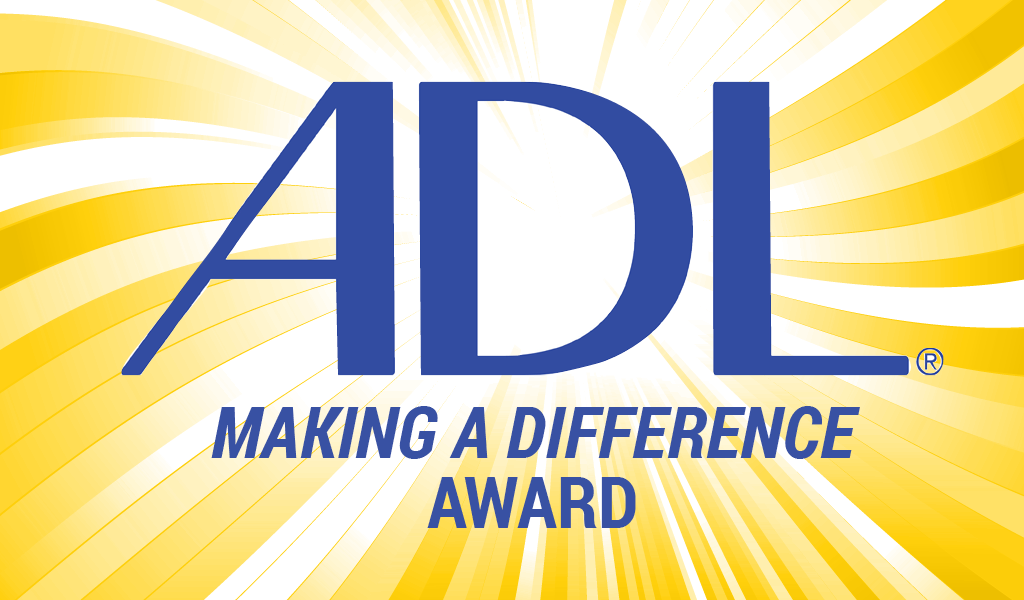
 “With the increase of bias motivated incidents, it is easy for individuals to feel as if there is nothing they can do to stop these incidents from happening,” says Sirois. “[As part of #Day1], asking leaders in schools, workplaces and faith communities to declare that cruelty, bullying, harassment and humiliation will not be tolerated is the first step to creating a culture that inspires others to move from being bystanders to upstanders,” says ADL’s New York Region’s Education Director Nicola Straker.
“With the increase of bias motivated incidents, it is easy for individuals to feel as if there is nothing they can do to stop these incidents from happening,” says Sirois. “[As part of #Day1], asking leaders in schools, workplaces and faith communities to declare that cruelty, bullying, harassment and humiliation will not be tolerated is the first step to creating a culture that inspires others to move from being bystanders to upstanders,” says ADL’s New York Region’s Education Director Nicola Straker.

 (NYC) Sean Kosofsky, the first full-time Executive Director for the Tyler Clementi Foundation has announced he will leave the organization later this summer. The organization will soon launch a national search for its next leader.
(NYC) Sean Kosofsky, the first full-time Executive Director for the Tyler Clementi Foundation has announced he will leave the organization later this summer. The organization will soon launch a national search for its next leader. “Especially now, with a bully-in-chief in the White House, we need to make it clearer than ever that this kind of behavior simply should not be accepted,” said Senator Murray. “No student should ever have to fear discrimination and harassment in their pursuit of education, no matter who they are, what they believe, or who they love. President Trump may have won the election, but I am going to keep fighting to make it clear that bullies will not win and bullying will not be tolerated. I made a promise to families like Tyler’s, to keep fighting to protect our students, and I’m going to keep fighting for policies like this no matter how hard President Trump pushes us the other way.”
“Especially now, with a bully-in-chief in the White House, we need to make it clearer than ever that this kind of behavior simply should not be accepted,” said Senator Murray. “No student should ever have to fear discrimination and harassment in their pursuit of education, no matter who they are, what they believe, or who they love. President Trump may have won the election, but I am going to keep fighting to make it clear that bullies will not win and bullying will not be tolerated. I made a promise to families like Tyler’s, to keep fighting to protect our students, and I’m going to keep fighting for policies like this no matter how hard President Trump pushes us the other way.”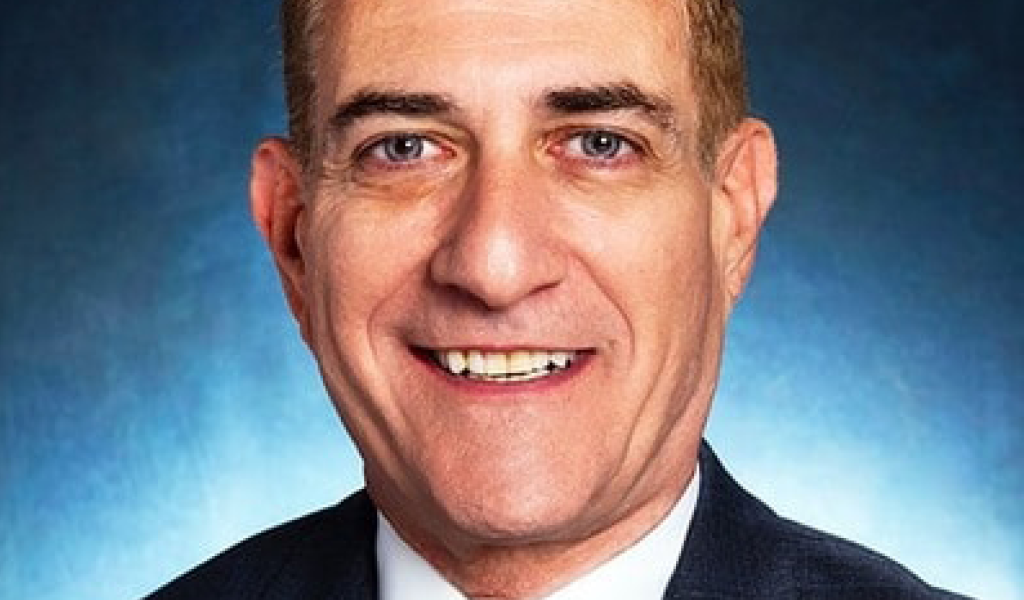
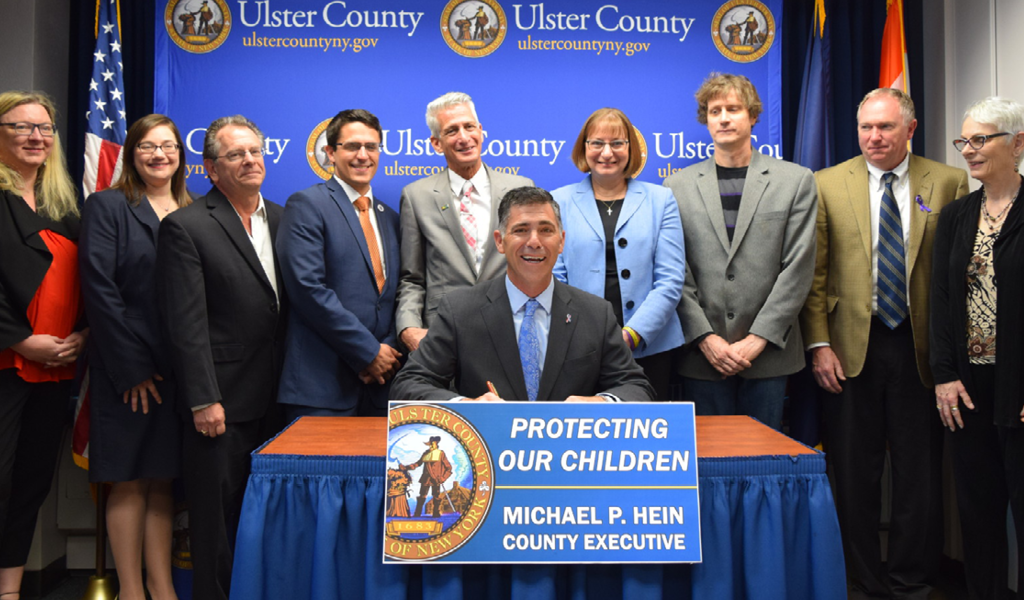
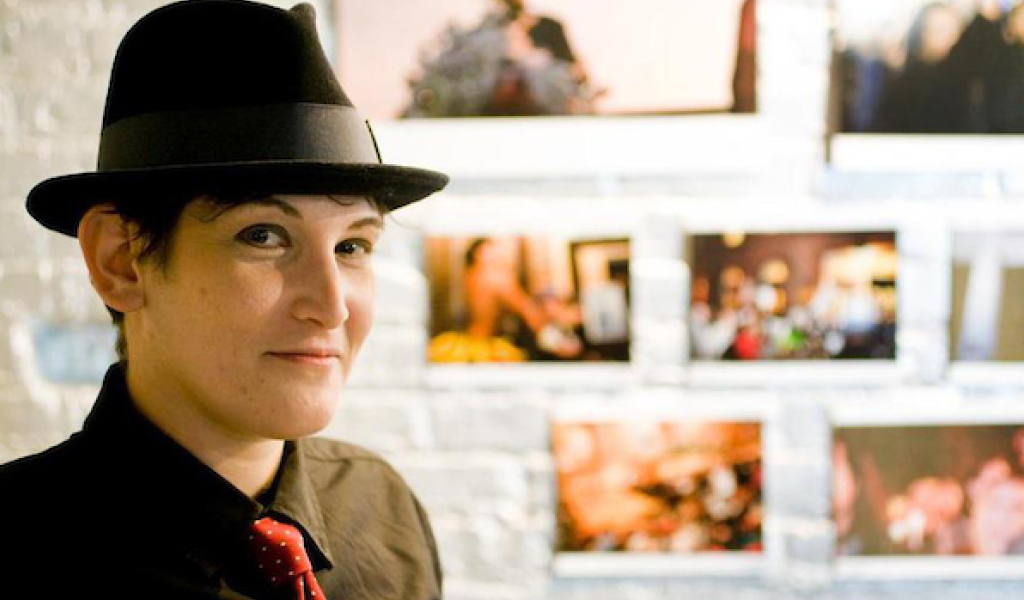
 Students organized action and vigil responding to Tyler Clementi’s suicide. Washington Square Park, New York City. 10.03.2010 Photo by Syd London ©2010, all rights reserved.
Students organized action and vigil responding to Tyler Clementi’s suicide. Washington Square Park, New York City. 10.03.2010 Photo by Syd London ©2010, all rights reserved. As a young artist, do you feel like people expect different things from you creatively? If so, what types of things and how do you respond?
As a young artist, do you feel like people expect different things from you creatively? If so, what types of things and how do you respond? Behind the scenes on the first shoot for “Aging While Queer” with Miss Major and Jay Toole. Oakland, CA. Photo by Wendi Kali ©2013, all rights reserved.
Behind the scenes on the first shoot for “Aging While Queer” with Miss Major and Jay Toole. Oakland, CA. Photo by Wendi Kali ©2013, all rights reserved. Opening night of "Ground Surge: Communities Rising" in the Human Rights Institute Gallery at Kean University in 2016. Syd London speaks welcomes everyone to her first solo exhibition. Photo by Katrina del Mar © 2016.
Opening night of "Ground Surge: Communities Rising" in the Human Rights Institute Gallery at Kean University in 2016. Syd London speaks welcomes everyone to her first solo exhibition. Photo by Katrina del Mar © 2016. Love & Shelter.
Love & Shelter.
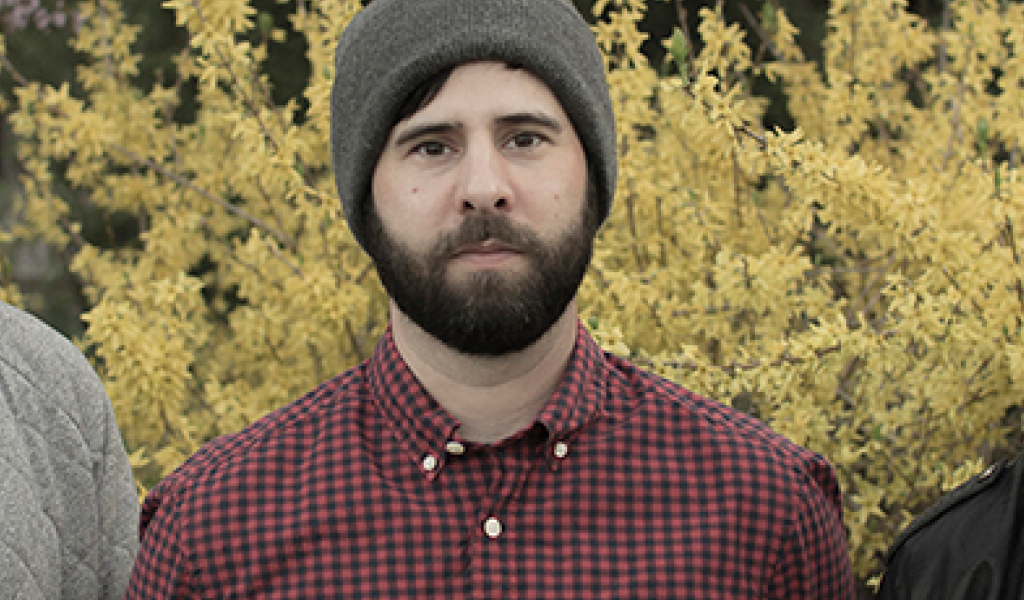
 Do you still find yourself encountering bullies as an LGBT Latino adult living in Virginia?
Do you still find yourself encountering bullies as an LGBT Latino adult living in Virginia?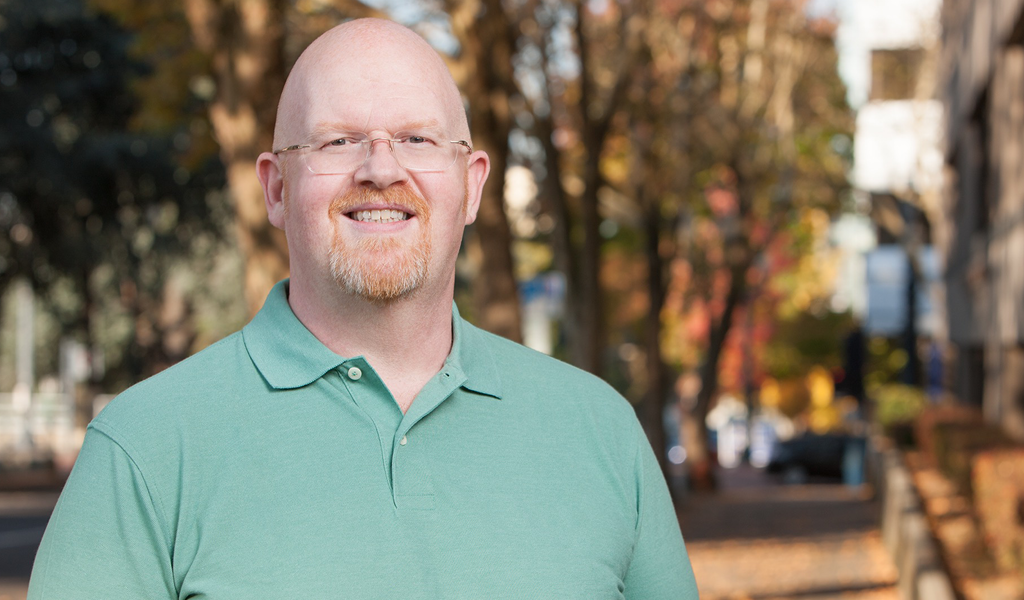
 And he went home, didn’t answer his phone for a few days, and then, took his life.
And he went home, didn’t answer his phone for a few days, and then, took his life.  Fate decided to make a little bigger deal out of it. Marriage became legal in Oregon, and when Mike and I tied the knot, it meant the sitting Teacher of the Year (and his very shy husband) just got gay married in front of every news station in town. A few weeks later, instead of the Gay Pride Parade, we rode in the Portland Rose Festival Grand Floral Parade. Almost half a million people watched the parade wind itself through the city. The loudspeakers set up every few blocks announced over and over again the Teacher of the Year and “riding with him—his husband.” Our driver told us he’d been driving VIPs for over a decade, and he had never heard such a thunderous response from the crowd. We knew that with every block of that long parade, we had sent our message loud and clear.
Fate decided to make a little bigger deal out of it. Marriage became legal in Oregon, and when Mike and I tied the knot, it meant the sitting Teacher of the Year (and his very shy husband) just got gay married in front of every news station in town. A few weeks later, instead of the Gay Pride Parade, we rode in the Portland Rose Festival Grand Floral Parade. Almost half a million people watched the parade wind itself through the city. The loudspeakers set up every few blocks announced over and over again the Teacher of the Year and “riding with him—his husband.” Our driver told us he’d been driving VIPs for over a decade, and he had never heard such a thunderous response from the crowd. We knew that with every block of that long parade, we had sent our message loud and clear.  That is why I am out. Because every time a young gay person hears about a successful LGBTQ adult, it’s like giving them a pat on the back. It gives them a little support. It shows them a possible future.
That is why I am out. Because every time a young gay person hears about a successful LGBTQ adult, it’s like giving them a pat on the back. It gives them a little support. It shows them a possible future.